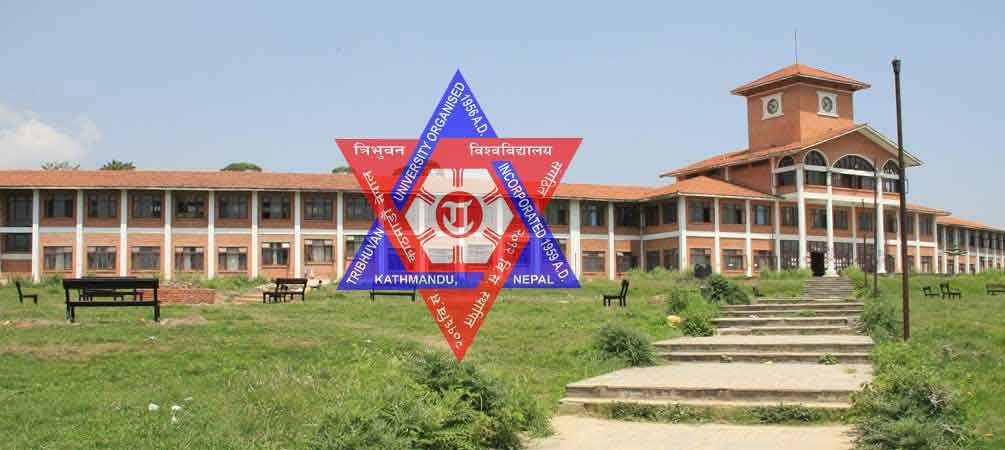
Selection Process for Tribhuvan University's 20th Vice-Chancellor
Tribhuvan University, a premier institution for higher education, recently underwent the selection process for its 20th Vice-Chancellor, marking a significant event in the academic community. The selection committee, following a transparent and rigorous evaluation procedure, recommended three distinguished candidates for the position.
Top Candidates and Evaluation Scores
- Prof. Dr. Chitra Bahadur Budhathoki, with an impressive score of 78 out of 100, led the recommendations. His extensive experience and contributions to the academic sector have been widely recognized, as seen through congratulatory messages on social media.
- Prof. Dr. Kesharjung Baral, known for his tenure as the Vice-Chancellor of Pokhara University, was recommended as the second choice, showcasing his profound impact and leadership in the educational sphere.
- Prof. Dr. Tankanath Dhamala, securing the third position with a score of 75, further highlights the caliber of candidates considered for this prestigious role.
Criteria for Selection
The selection process for the Vice-Chancellor of Tribhuvan University is structured around a comprehensive evaluation framework, designed to identify candidates who demonstrate exceptional leadership, academic proficiency, and visionary planning. Here's a detailed breakdown of the criteria used in the selection process, along with the allocation of marks:
-
Work Experience in Academic Leadership (Total: 10 Marks)
- Professorial Tenure in Higher Education: Candidates are awarded up to 10 marks based on their experience teaching at the professor level. The system rewards two marks for each year of service, emphasizing the value of sustained academic leadership and teaching excellence. However, tenure less than a year is not considered in the scoring.
-
Academic Qualifications (Total: 5 Marks)
- Graduation: Achievements in higher education are recognized, with a maximum of five marks allocated for academic qualifications. This criterion underscores the importance of formal education in shaping educational leaders.
-
Administrative Experience (Total: 4 Marks)
- Leadership Roles: Officials who have held administrative positions in domestic or foreign universities or similar institutions earn up to four marks, at a rate of one mark per year, for a maximum of four years. This acknowledges the significance of administrative experience in managing complex educational organizations.
-
Publications (Total: 5 Marks)
- Academic and Research Books: Publishing academic and research books, especially those with an ISBN, is highly valued, with up to five marks available. This criterion rewards the dissemination of knowledge and scholarly contribution to the academic community.
-
Research Projects (Total: 6 Marks)
- Academic Research Leadership: For leading academic research projects, candidates can earn three marks per project, up to a maximum of six marks. This evaluates the candidate's ability to spearhead research initiatives that advance knowledge and understanding.
-
Vision and Professional Work Plan for Tribhuvan University (Total: 35 Marks)
- University Vision Paper (15 Marks): Candidates must articulate a vision that encompasses quality enhancement, property utilization, campus strengthening, academic center development, and transparency. Each area is evaluated on its potential impact and feasibility.
- Four-Year Professional Work Plan (20 Marks): This includes a SWOT analysis, inter-university relations, strategic improvement areas, and a comprehensive action plan. It assesses strategic thinking and planning skills crucial for university leadership.
-
Presentation Skills (Total: 20 Marks)
- Knowledge and Implementation of Reforms (7 Marks), Analytical Skills (6 Marks), and Innovation and Objectivity (7 Marks): Candidates are evaluated on their ability to present their vision and plan coherently, demonstrating understanding of university reforms, analytical proficiency, and innovative thinking.
-
Interview Performance (Total: 15 Marks)
- Interviewers assess candidates based on their insights, coherence with national and international practices, and logical reasoning. The scoring reflects the candidate's ability to articulate their vision and respond to challenges in higher education effectively.
Overall, the selection criteria are designed to ensure that the chosen Vice-Chancellor possesses a balanced mix of academic excellence, leadership experience, strategic vision, and innovative thinking, capable of guiding Tribhuvan University towards a prosperous future.
Conclusion
The selection of Tribhuvan University's Vice-Chancellor is a testament to the rigorous standards and comprehensive evaluation process aimed at identifying leaders capable of enhancing the institution's academic excellence and global standing. The candidates' diverse qualifications and visionary proposals for the university's future underscore the commitment to maintaining high standards of education and research. This process not only highlights the candidates' achievements but also sets a benchmark for future academic leadership selections, ensuring the continued growth and success of Tribhuvan University.
Tribhuvan University




